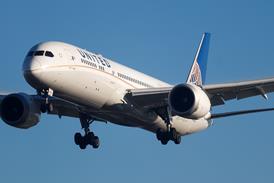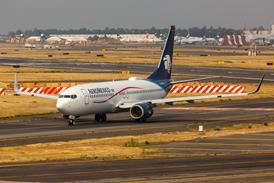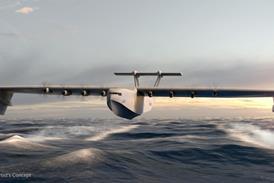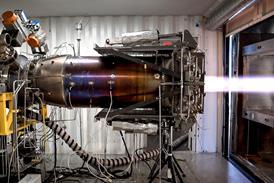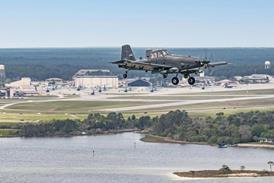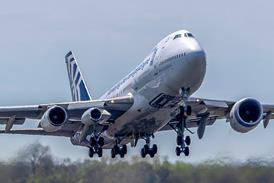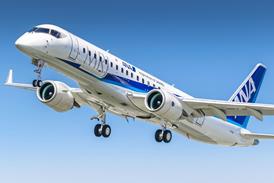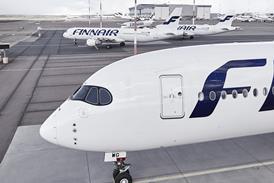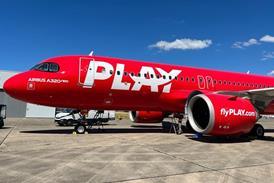Electric aircraft start-up Pyka is expanding into the defence realm, teaming with mission systems provider Sierra Nevada to offer a militarised version of its Pelican Cargo uncrewed aircraft.
The Oakland, California manufacturer on 6 May said it will offer the autonomous air vehicle to the US military under the moniker Rumrunner, with Sierra Nevada providing the electric aircraft’s mission systems.
Pyka is targeting military logistics operations with the new offering, saying Rumrunner will have a cargo payload of up to 181kg (400lb), 173nm (321km) of range and “super short” take-off and landing capability.
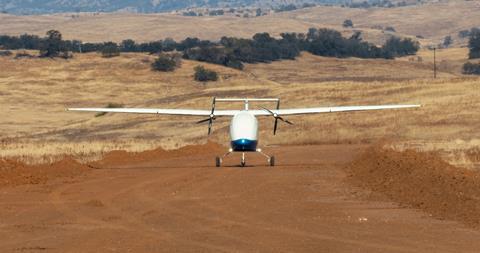
Under the Pentagon’s definition, to qualify as short take-off and landing capable, an aircraft must be able to clear a 15.2m (50ft) obstacle within 450m of commencing take-off, and when landing must stop within 450m after passing over a 12.2m obstacle.
According to Pyka’s website, the Pelican Cargo civil UAV upon which Rumrunner is based can operate from a runway of just 250m, including gravel, dirt and grass surfaces.
“Rumrunner is a game changer for military sustainment operations,” the company says, “enabling dynamic logistics and operational energy support from points of distribution to points of need”.

Sierra Nevada vice-president of programmes Michael Bertman says his company chose to partner with Pyka because the Pelican Cargo is “significantly more capable” than any other platform currently available.
“It is the only all-electric, austere-environment cargo aircraft with that kind of range, payload capacity and cargo volume,” Bertman says.
Sierra Nevada argues that the lack of reliance on traditional liquid petroleum fuel will create a “more diverse, distributed and survivable supply chain” it expects will be of interest to the Pentagon.
Reducing the need to stage bulk fuel stocks in vulnerable, forward areas “significantly reduces the logistics tail normally associated with resupply operations”, Bertman argues.
The US military is evaluating several electric aircraft for potential service. Under its Agility Prime programme, the US Air Force is helping fund several developers of electric vertical take-off and landing aircraft, including Archer and Beta Technologies. That effort is also funding XWing, another California start-up seeking to deliver an autonomous light cargo aircraft.
The US Navy is already testing autonomous UAVs for delivering supplies to ships at sea under its Blue Water Logistics Maritime UAS programme.
Both the navy and the US Army are assessing the potential of a hybrid-electric short take-off and landing aircraft being developed by Virginia-based developer Electra, with an eye toward supporting logistics in contested environments.

